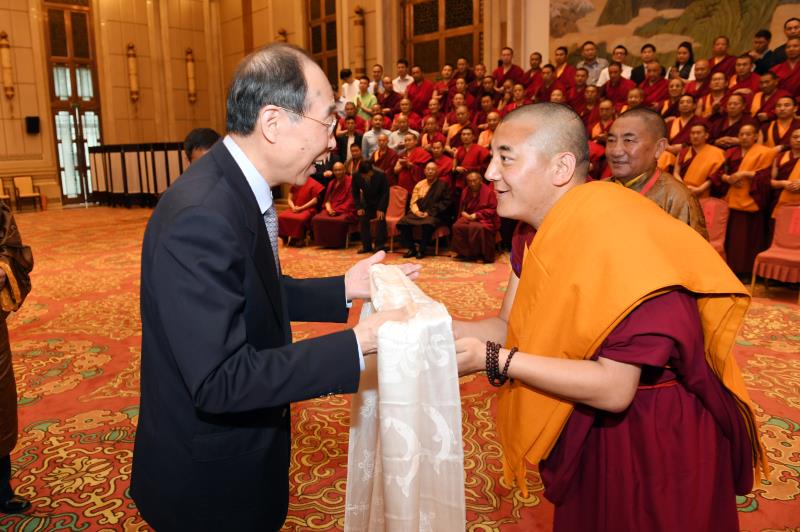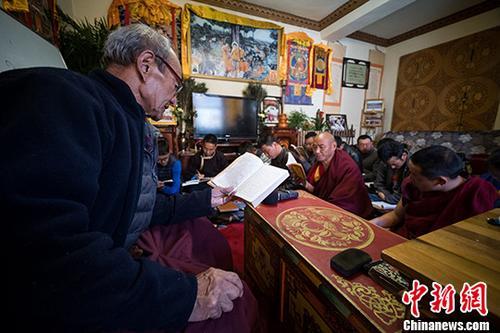College denies Islamic culture course taught by Pakistani student spread religious beliefs
A Chinese university denied that an Islamic culture course taught by a Pakistani student had spread religious beliefs to students, amid online criticism that the university failed to separate education from religion.
Nanjing Agricultural University in East China's Jiangsu Province said on Tuesday that the course "Islamic culture," which was opened to undergraduates in the College of Engineering, was suspended half a year ago.
"It was suspended after the school discovered in late 2017 that the course instructor, a Pakistani student who is seeking a PhD degree in our university, was unqualified to teach in Chinese universities," a university employee surnamed Huang told the Global Times.
The university said in a separate online statement that it has begun investigating the incident, and will hold relevant people accountable.
The course was meant to introduce students to Islamic culture, history and festivals, and also to introduce Muslim conventions. The university said it did not find any evidence that the instructor had guided students to engage in religious practices during and outside the class.
The university responded after Xi Wuyi, an expert on Marxism at the Chinese Academy of Social Sciences, wrote on her Sina Weibo on May 30 that the university, in a clear violation of law, spread religious beliefs in class. China's Education Law stipulates that education should be separated from religion.
Xi's post sparked heated discussions online.
"We did not practice religion in the course and were not asked to memorize any religious texts," an anonymous student who attended the course, told the Global Times.
She said that many people chose this course because it's easy to pass, and the "teacher" conducts lectures in English, "so many students believe the course can improve their English skills."
"Universities are allowed to offer courses on religion. However, actions such as building religious sites, religious practices and advocating religious dogma in schools are strictly forbidden," Shen Guiping, a religious expert at the Central Institute of Socialism in Beijing, told the Global Times.
China's newly revised regulation on religious affairs, which took effect in February, bans religious practices and activities in schools and other educational institutions, except at religious schools.
However, Shen noted that a fine line exists between introducing religions to students and guiding them to practice religions.
The university said it sticks to the ethnic equality principle and encourages cross-cultural exchanges. It also vowed to strengthen scrutiny over its courses and prevent religion from infiltrating the campus.
In May, Northwest Minzu University in Northwest China's Gansu Province stressed a ban on religious activities on campus during the Muslim holy month of Ramadan, amid a clamor to regulate religious practices and make sure they do not "disturb public order."
Newspaper headline: College suspends Islamic course
Your Comment
Name E-mailRelated News
-
-
China approves new anti-HIV drug with fewer side effects on liver
China has approved the world's first long-acting fusion inhibitor for HIV, media reported.
-
-
China calls for better efforts by courts on environment protection
China's Supreme People's Court Monday issued a guideline asking courts at all levels to exercise better judicial functions in environmental cases to contribute to the building of a more ecologically aware society.
-
-

-
Education quality in Tibet sees great improvement
Education quality of the region has seen great improvement since a program, in which excellent teachers from other places support the region through education, was launched in 2016.
-
-
-

-
5,711 orphans adopted in SW China's Tibet
By the end of 2017, the region has established 11 orphanages with 5,711 orphans being adopted.
-
-
-
Fewer Chinese students overseas considering migration: survey
Compared with previous years, more Chinese students studying overseas said they did not plan to immigrate in the future, according to a report released earlier this week. The Report on Chinese Students' Overseas Study, issued by the New Oriental Vision Overseas and six other companies, was based on a survey conducted both online and offline between February and March this year covering about 5,000 valid samples.







